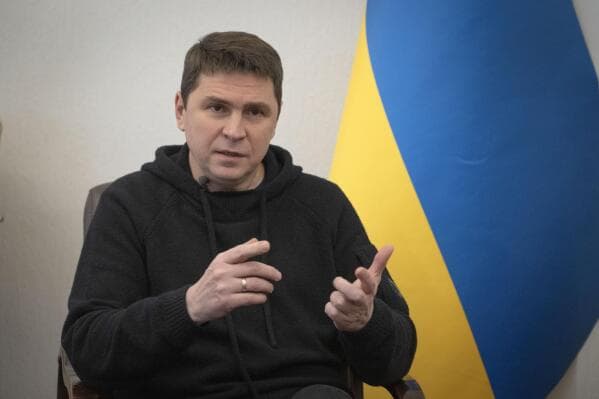ROME – A senior advisor to Ukrainian President Volodymyr Zelensky has labeled Pope Francis as “pro-Russian” and “not credible,” flatly rejecting any prospect that the Vatican might play mediating role in the current Russian war in the country.
The advisor also suggested that the pope’s line on the war may be influenced by Russian investments in the Vatican bank.
Pope Francis “unknowingly is cancelling the reputation of the Holy See,” said Mykhailo Podolyak in an interview with Ukraine’s Channel 24 news service on Friday.
“It doesn’t make sense to speak of a mediator called the pope if he assumes a pro-Russian position, which is evident to everyone,” Podolyak said. “It wasn’t the first time, but before it happened in a somewhat confused way and we pretended not to see.”
Podolyak, a senior advisor to the Office of the President in Ukraine, spoke in the wake of a controversy that erupted in late August after Pope Francis praised the legacy of “Great Mother Russia” in a video conference with Russian Catholic youth gathered in St. Petersburg.
Francis attempted to smooth things over in comments to reporters aboard the papal plane after his recent visit to Mongolia, insisting that he wasn’t praising Russian imperialism but rather its culture. Podolyak, however, clearly wasn’t persuaded.
“Today it’s clear he has a pro-Russian position, and this reflects in an extremely negative way on the war,” Podolyak said. “If a person clearly promotes the right of Russia to kill the citizens of another country on another sovereign territory, he’s promoting the war. We have to call things by name.”
“The Vatican can’t have any role of mediation: It would deceive Ukraine, or justice,” Podolyak said.
The advisor to Zelensky also implied that financial considerations may play a role in the pope’s messaging on the war.
“We have to look at the investments that Russia is making in the Vatican bank,” he said. “Why does a country called the Vatican take such a strange position? We have to analyze this in a more detailed way.”
Podolyak did not provide any details regarding that alleged Russian stake in the Vatican bank, which is formally known as the Institute for the Works of Religion and generally accepts deposits only from religious orders and other authorized Catholic entities around the world.
Podolyak’s critical comments on Pope Francis and the Vatican come at a time when the pope’s personal envoy for the Ukraine conflict, Italian Cardinal Matteo Zuppi, is preparing to travel to Beijing, after having made visits to Kyiv, Moscow and Washington, D.C., in an attempt to play a mediating role, beginning with humanitarian questions such as the return of Ukrainian children removed by Russian forces from the eastern part of the country.
Although Pope Francis repeatedly has expressed his solidarity with the Ukrainian people from the beginning of the war, he has also refrained from directly condemning Russia or Putin, occasionally generating consternation not only from government officials in Ukraine but also his own Catholic flock in the country.
Amid the tempest over the “Great Mother Russia” comments, Major Archbishop Sviatoslav Shevchuk, head of Ukraine’s Greek Catholic Church, issued a statement saying the pontiff’s words caused “great pain and concern.”
The bishops of the six-million-strong Greek Catholic Church, the largest of the eastern churches in communion with Rome, are currently in Rome for a synod meeting.
RELATED: Pope’s peace envoy meets Ukraine bishops amid fallout over ‘Great Mother Russia’ remarks
After a Sept. 6 encounter with the pontiff, the Ukrainian bishops released a statement saying they had a “frank conversation,” during which they said they expressed “the Ukrainian people’s pain, suffering, and a certain disappointment.”
The bishops said they expressed that certain gestures and statements by the pontiff “are painful and difficult for the Ukrainian people, who are currently bleeding in the struggle for their dignity and independence.”
Some of those gestures and statements, the bishops said, are being used by “Russian propaganda” to justify “the murderous ideology of the ‘Russian World.’”











